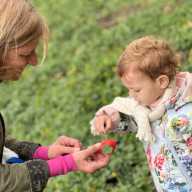BY PETER SMERGUT
The word “autism” conjures up many images and emotions. We have all witnessed the pandemic growth of this disability and it is hard to keep track of the incidents among newborn. Whether you subscribe to the 1/88 births or the more recent 1/50 births, the facts are clear, this is an extraordinary event. As we celebrate Autism Awareness month it comes to mind that we are grappling with a phenomenon for which we have no current solution. The rate among newborn infants dwarfs comparison to any other disability grouping. What has brought us to this point is of great conjecture and much is being done in the way of research and education. But as this population works its way to maturity, one wonders what supports they will have when they leave the comfort and security of the school system where services are mandated and supports are readily available.
The adult sector poses a whole new set of unique challenges and Gov. Cuomo’s most recent budget priorities gives us some indication of future public policy. New York State has a long proud history of providing support for people with all types of needs. The traditional group home model for individuals with intellectual disabilities and autism will however no longer be available. The future will require a different partnership between government and families to ensure that adequate supports are in place as parents age and the needs of their children become more challenging.
In these tumultuous economic times agencies such as Life’s WORC and its sister organizations have long been asked to do more with less and quite frankly, most of us have gotten very good at it. It has become self evident that the old ways of doing business are gone and that we will have to adapt to a new fiscal environment. Most organizations who support individuals with disabilities embrace this challenge but we encourage those in power to realize that the services currently provided did not emerge overnight. It is our hope that as we partner with governmental agencies the dismantling and redesign of this system will be given ample time to develop new alternatives consistent with the needs of each individual’s level of support. Clearly there are different ways to provide supports and it is our intention to take advantage of whatever opportunities exist in this new philosophy.
Given the extraordinary growth in the number of individuals that will need to be served over the next few decades our lawmakers face a significant ethical and moral dilemma. What will the role of government be in helping to support thousands of families as they confront this personal crisis? Whatever new systems are planned will need the full attention and cooperation of families, individuals requiring support, voluntary providers, lawmakers and governmental agencies. We must embrace the best models of support available while concurrently acknowledging the extraordinary system that was created over the last four decades.
Willowbrook did not occur overnight– it was a lack of governmental will and poorly managed public policy that eventually led to its demise.
Peter Smergut is CEO of Life’s WORC, whose mission is to provide services that facilitate an independent and productive life experience for individuals with
developmental disabilities and autism.



































